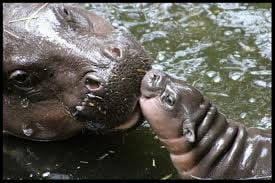Keeping you informed
Newsletter May 2017

Our new hospital wing is now open!
We have recently moved into our new extensions and will be in this part of the hospital exclusively for the next 4 weeks while our new reception, consult rooms, pharmacy and triage room are being constructed.
During this time, our reception will be located at the rear of the building. It is best to drive into Princes Lane and park in the Princes Lane carpark.
Our opening hours remain the same:
Monday to Friday 8am to 7pm.
Saturday 8am to 2pm.
Sunday 10am to 12pm.
We thank everyone for their patience during this process.
Pet of the Month: Jack
The rescue dog who has found his forever home.
 Jack (pictured here with nurse Katie) is a little rescue dog of 7 years who started life with a wonderful couple. Jack was important to them and part of the family. Unfortunately, the husband passed away and the son returned home to keep his mother company. This is when Jack’s life turned upside down as their son unfortunately did not like Jack.
Jack (pictured here with nurse Katie) is a little rescue dog of 7 years who started life with a wonderful couple. Jack was important to them and part of the family. Unfortunately, the husband passed away and the son returned home to keep his mother company. This is when Jack’s life turned upside down as their son unfortunately did not like Jack.
Jack was relegated to outside where he spent his nights and days. He was in a neglected condition and when this was picked up by the neighbours, they convinced the mother to re-home the dog.
Denise from PAWS rescue placed Jack in a foster home near Canberra with 3 other dogs where he flourished. His new owner, who has another little dog (also a rescue from PAWS), collected him from the foster home to bring him to his forever home.
Jack has settled in so well. He is a very active dog, always looking for walks and loving playing games. He has a lot of ‘spunk’ and is often the top dog in the household, however despite this he has become great friends with the other dog in the household and settled into his new family life.
We wish Jack well in his new home and have supplied his owner with a bag of Royal Canin dog food.
Does your dog or cat have sore joints?
 As we approach winter and the colder weather that it brings, our animals can start feeling stiff and sore in their joints.
As we approach winter and the colder weather that it brings, our animals can start feeling stiff and sore in their joints.
Animals often hide their pain and it can sometimes be easy to miss. Look out for these symptoms (could be just one):
- Difficulty in getting into their bed.
- Difficulty jumping up.
- Aggression or withdrawal behaviour when patted or approached.
- Performing behaviours not usual for your dog or cat.
- Despite common belief, arthritis isn’t just something our pets have to deal with in old age. There is plenty we can do for our animals to alleviate their suffering.
- A firmer, slightly raised bed such as a trampoline bed makes it easier to get in and out of and provides adequate support for the joints.
- A soft, thick blanket, sheepskin or mat on top can help warm the limbs and make stiffness less likely.
- Older animals will cope better when kept indoors (especially overnight) where it is warmer.
- Gentle, but regular exercise is important to ensure the muscles stay in good condition to support the joints.
- Ensure your pet is within a healthy weight range. You can always drop into the clinic to weigh your pet.
- A coat is a good idea for older animals to ensure they stay warm even when going outside (however, for outdoor cats, please remove the coat so they don’t catch the coat on anything while roaming).
- Dietary modification with foods such as Royal Canin Mobility to maintain healthy joints and an ideal weight.
- There are short-term treatments and long term medications that can be prescribed to reduce inflammation and ease pain (NEVER use human pain relief medications in dogs and cats – in particular Panadol is toxic to cats).
Please contact us on 9988 0198 for an appointment for your dog or cat to relieve their arthritic symptoms.
Taronga Zoo welcomes it’s first baby Pygmy Hippo in 7 years!
 A little female Pygmy Hippopotamus (who is yet to be named) was born at Taronga Zoo on the 21st February. She is the first born for parents Fergus and Kambiri (who was also born at Taronga Zoo).
A little female Pygmy Hippopotamus (who is yet to be named) was born at Taronga Zoo on the 21st February. She is the first born for parents Fergus and Kambiri (who was also born at Taronga Zoo).
She is now exploring her enclosure and learning to swim with her mum by her side.
Pygmy Hippos are currently endangered in the wild with an estimate of 2000. They reside in West Africa and are primarily solitary, only coming together to breed.
A combination of habitat destruction, harvesting of their food source and poaching has caused the decline.

